SERIAL EXPERIMENTS LAIN
STATUS
COMPLETE
EPISODES
13
RELEASE
September 28, 1998
LENGTH
23 min
DESCRIPTION
We're all connected... There is the world around us, a world of people, tactile sensation, and culture. There is the wired world, inside the computer, of images, personalities, virtual experiences, and a culture all of its own. The day after a classmate commits suicide, Lain, a 14-year-old girl, discovers how closely the two worlds are linked when she receives an e-mail from the dead girl: I just abandoned my body. I still live here...
Has the line between the real world and the wired world begun to blur?
(Source: Geneon Entertainment)
CAST
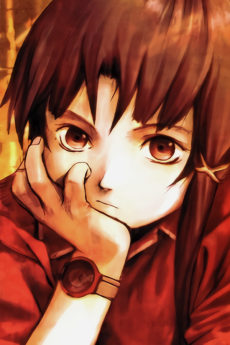
Lain Iwakura

Kaori Shimizu
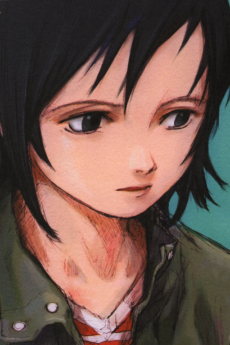
Arisu Mizuki

Youko Asada
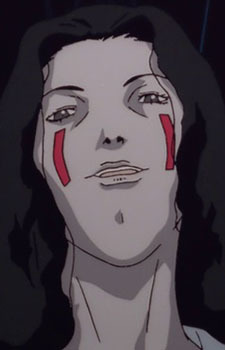
Masami Eiri
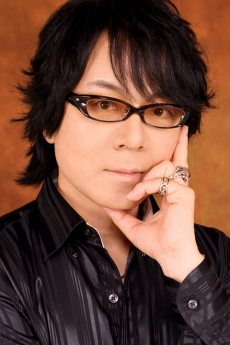
Shou Hayami
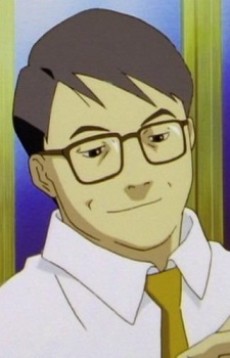
Yasuo Iwakura

Ryuusuke Oobayashi
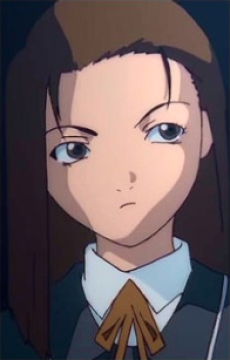
Mika Iwakura

Ayako Kawasumi
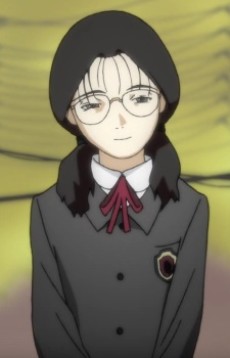
Chisa Yomoda
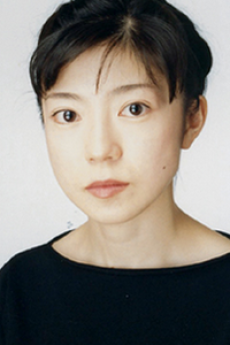
Sumi Mutou
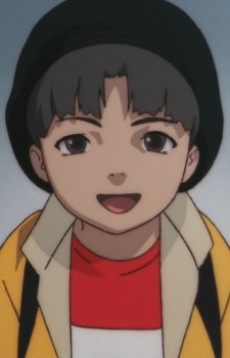
Tarou

Keito Takimoto

Karl
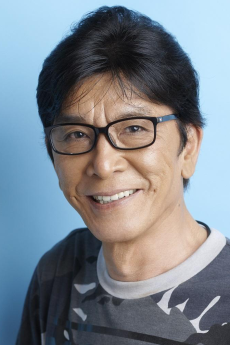
Jouji Nakata

J.J

Wasei Chikada
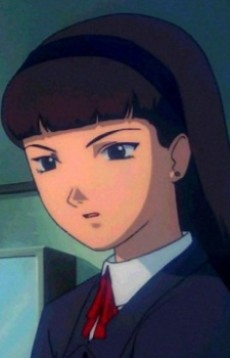
Reika Yamamoto

Chiharu Tezuka
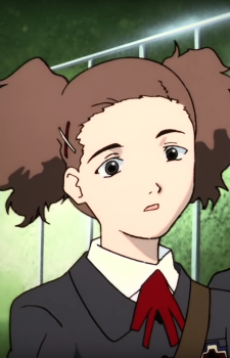
Juri Katou

Manabi Mizuno
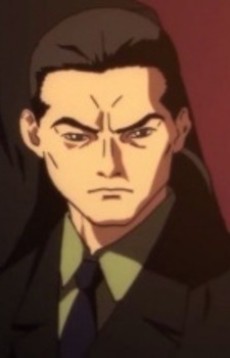
Lin Sui-Xi
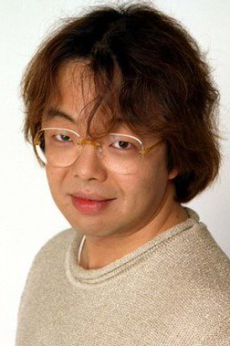
Takumi Yamazaki

Miho Iwakura

Rei Igarashi
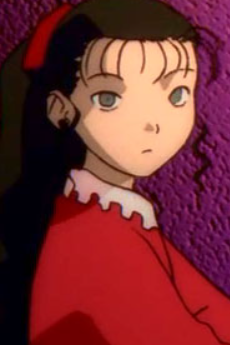
Myu-Myu

Yuuki Yamamoto
EPISODES
Dubbed
RELATED TO SERIAL EXPERIMENTS LAIN
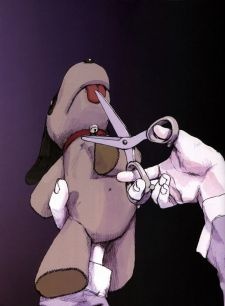 ONE SHOT Psychologicalthe nightmare of fabrication
ONE SHOT Psychologicalthe nightmare of fabricationREVIEWS

naught
90/100A classic with some relevant philosophical messages wrapped in an unforgettable presentation and plot.Continue on AniList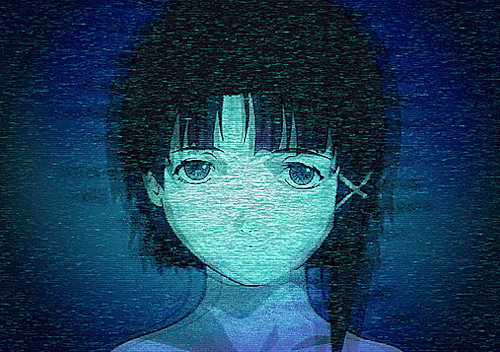
Serial Experiments Lain tells the tale of a 14 year old girl, Lain, trying to find out what her role in both reality and the internet is. That is obviously a very vague synopsis, and my reason behind this is that the story is truly something that must be experienced firsthand. I feel obligated to mention how weird (but by no means bad) the pacing is. The actual story doesn't even really begin until halfway through, but that doesn't make the first half, which is focused more about Lain discovering both herself and "the Wired" (SEL's version of the internet) any less gripping. Serial Experiments Lain does not spoonfeed its story and purposefully leaves you in the dark at times, which only heightens the engagement level and makes the payoff that much more rewarding when you actually do figure out why all these strange events surrounding Lain are happening. Later on in the series there are a few "exposition dumps," but luckily they are executed perfectly. Even one mistake in this aspect would result in a plethora of plotholes considering how intricate the story is, but the way the exposition is handled allows Lain's masterful plot to truly shine.
"hey what kind of anime you wanna watch?"
"just fuck me up fam."

This is not a story for those in search of action and borderline naked girls, and to a further extent not a story for those looking for any sort of casual watching experience. I consider this the opposite of a “turn off your brain” type of anime - through each episode of Lain I found myself questioning what I was seeing, constantly looking to connect the abstract imagery and symbolism presented, and generally just figure out what the hell was going on. Rather than the more direct exposition of most anime, Lain tells its story through a combination of sparse, but philosophically dense, dialogue alongside a ton of symbolic, and often trippy visuals. Much of the allure of the show is in how much intertext and hidden meaning there is, and this is something immediately apparent from episode 1 with the first 7.5 minutes having a total of 10 lines of dialogue, opting instead to set the tone with a depiction of a young girl committing suicide.

Even after a rewatch or two you will consistently find little connections and cryptic visual messages you missed that tie into the overall narrative of the show, such as this subtle shading connecting the aforementioned suicidal girl from the beginning of episode 1 to the Wired, as the same shading is frequently used later on when hinting at the protagonist transitioning between “reality” and the Wired.




It can be very information dense and very easy to lose yourself the first time watching, but by the end you will have your mind blown even if you didn’t fully understand everything (you likely won’t). And it isn’t only the story that’s given in an experimental manner, the ways Lain conveys its message is equally unorthodox. It is often hard to distinguish between when the show is depicting reality and when it’s depicting the Wired, but this emphasizes a central question it asks – what is the difference between reality and the internet? What does reality even mean? Everything you see is shown through Lain’s perspective, which is very distorted. This blur between real and virtual gives SEL a sense of unreliability to the viewer, akin to Satoshi Kon’s works at times, but this only serves to strengthen the message it presents.
Iwakura Lain
If I had to find one shortcoming of Serial Experiments Lain in my mind it would be the small cast of relevant contributing characters. Despite the complexity of the story, because so much of it is told through visuals and the protagonist’s self-questioning there isn’t a need for a lot of characters like you see in many other psychological anime. However, what SEL lacks in quantity it makes up for in quality, especially with the simultaneously endearing and mysterious MC. This show entirely focuses on one character, Lain, and yet I still wanted to see more of her by the end. This is partly due to how much Lain evolves throughout the series, her personality can change so much that it sometimes seems like a different character entirely.

I could count the characters that actually affect the plot on one hand, and even then their contributions aren’t all that significant, apart from Lain obviously. In saying that, the supporting cast did lead to some particularly poignant moments. In addition, very few of the side characters are given any backstory whatsoever, but the way they are presented more than makes up for this. I never felt like I needed to see anything relating to a character’s background because I already knew everything I needed to know from their dialogue and expressions. After all, this is a story about Lain, not the people around her.
Sights, Sounds, and Feels
Though individual animations can be clumsy at times, SEL’s approach to its visuals is nothing short of spectacular. A rather dreary color pallet is used which contrasts nicely with the neon blues and greens of the Wired. One of the first things that stuck out to me when watching Lain was the use of light. Lighting in the show is very harsh and distinctive, typically using a blinding pure white light that interplays beautifully with the frequent use of inky and dismal shadowing, further lending to the mysterious and at times almost nightmarish atmosphere.



But that's not to say the animation isn’t without some faults - the characters are drawn in a fairly realistic fashion compared to the standard of the medium, which to me is preferable for an anime such as this; however, it isn’t always executed perfectly and occasionally leads to some awkward looking character expressions.
As far as sound goes, Lain takes an extremely minimalistic approach. Sometimes there are minutes, or even entire episodes, with little to nothing as far as a typical soundtrack would go. However where the OST is prevalent it is utilized wonderfully, often using eerie synths and sparse percussion to set the mood.
Rather than traditional songs, Lain’s audio is filled with sounds such as the bustle of pedestrian traffic, noises of trains passing, the hum of electrical currents through telephone cables, the clicking of a computer keyboard. Sometimes even these are absent, leaving the viewer with extensive silence.
The unique artstyle and complementing approach to audio masterfully succeed in creating one of the most enigmatic and memorable atmospheres I’ve encountered.
Let’s all love Lain!
Serial Experiments Lain is one of the most thought provoking shows you’ll see, with themes such as identity, modern isolation, and humanity’s reliance and combination with technology prevalent, yet still hidden under a blanket of unconventional exposition. Lain doesn’t look to prescribe advice or answer questions – in fact it raises far more than it answers. If anything, it’s trying bring a series of ideas to attention by offering a layered (heh) postmodern commentary on them. SEL covers some philosophical topics that are very grounded in reality and have only increased in relevance since its release alongside the increasing connectedness of the information age we live in. Subsequently, Lain is an anime that will likely change the way you think about the internet, and possibly even the way you think about humanity and what it means to be alive. A must watch for any fans of the medium.

Lenlo
78/100A wholly unique and one of a kind, though not necessarily pleasant, experience in anime.Continue on AniList
Serial Experiments Lain is weird. It is a series unlike any other, wholly unique in anime, both modern and historical. Every aspect of it, from presentation to narrative, is best described as an experience. It is because of this that I believe Lain is a must watch, if only to experience a piece of anime history. That said, Serial Experiments Lain can hardly be said to be an “enjoyable” series. It is certainly evocative, Serial Experiments Lain will bring about emotions and force you to confront reality in a unique way. But I at least did not end the series thinking I would watch it again anytime soon, and this density will no doubt be off putting for many. However while these may keep it out of my favorites, it is without a doubt worth your time. Lets go.
Quick Warning: There are spoilers past this line. For a better formatted version, feel free to head to my blog here.

Animation/Art Starting off, let’s talk production. Now, because of Lain's age, we have to be a bit careful how we judge it. Lain comes from the tail end of the era of Cel Animation, where every individual frame had to be made by hand. Compared to Digital, they are two very different mediums and have very different strengths. This isn’t to say that Cel can’t have some fantastic sequences that hold up to this day. You need look no further than Cowboy Bebop, or even some of Lain's episodes themselves for proof of this. Cel can still get a fantastic effect, it is simply more expensive and time consuming to produce, and so we got less of it. One could look at this another way though and say we are spoiled for animation now. As Lain's lack of it makes those moments of beauty hit that much harder.
Getting to the point, none if this is to say Lain looks bad. Cel animation has a distinct style all its own. Its rougher, more obviously handmade, giving it a level of detail digital often can’t match. In digital, replicating things like brush strokes or pencil sketches are incredibly difficult. Almost impossible. If I had to compare it to something, it would be CGI to Claymation/Stop Motion. The actual physical objects have texture and weight to them that is very difficult to replicate in CGI. It’s very similar with Cel to Digital animation. You can see this in a number of hand-made backgrounds for Serial Experiments Lain. Basically, Digital can sometimes look too clean, removing any texture from the scene at all. All my rambling on Cel vs Digital aside, the point is, Lain might not have a lot of animation, but it doesn’t need it to look good.

Direction This all leads into the Direction, which is where Serial Experiment Lain’s real strength lies. When your animation prospects are limited, you have to find other ways to get your scene across. Some series do this with a lot of dialogue. Others fail to do it at all. Lain though… Lain does it with fantastically surreal imagery and depictions of the Wired. Getting information across purely through scene composition. Examples of this include almost every instance of Lain surfing the Wired. With other users being represented by floating body parts, since they cannot fully realize themselves like Lain can. Their forms and the environment they are talking in giving just as much information as the actual conversation. Its things like this that I believe we have lost with the advent of Digital Animation. As the lack of limitations means less creativity is required for any given scene.
All that said, this doesn’t mean I think Lain is perfect in this respect. Just more positive than negative. There are a number of scenes, and even an entire episode, where Lain goes a bit to wild for my taste. Completely divorcing itself from the reality of the show, what little there is. This intense imagery also negatively impacts pacing at times for me. Occasionally drawing me out of what is happening or forcing me to either stop the show and examine the scene, or let it play on and miss something important. This goes back to my opening statement about Lain's density possibly turning some people off. It is not an easy to consume show. And however valuable its message and contents are, it is a simple fact that people’s time is limited and enjoyment is something to be treasured and considered in a series.

Sound Design The last bit of production we will talk about is the sound design. This was really hit or miss with me. Sometimes it was fantastic, really nailing that foley work. For instance any of the Iwakura household meals had some fantastic silverware and eating sounds. In addition the ambiance throughout the show was great to. Such that I almost think they just recorded an actual intersection. However, as much as I enjoyed these, this high bar makes the ones that don’t meet it stand out. For example a lot of the voice acting just feels flat and lifeless. Part of this is no doubt on purpose, as a theme throughout the series is Lain’s humanity. But from the perspective of an average viewer, it can make some longer dialogues a slog to get through. However interesting the content might be, poor delivery will hamper the experience.
On the other end of sound design, we have the OST. I’ll be honest here, I had to actually look up and listen to the OST on its own for this review. As aside from the OP and the Lain's theme. All in all, I didn’t find it particularly memorable. There are some interesting tracks inside it, such as "Mist of a Different Dimension" and "Wind of Space and Time". However, as a general album it’s not my style, as general Rock isn’t my personal genre. This isn’t to say I think it was terrible, I think Lain's OST really adds to some scenes. I just wouldn’t buy the album to listen to in the car. Not like I have Yuki Kaijura’s .hack//SIGN OST or Berserk ’97’s OST. So all in all, an acceptable, but not memorable showing here.

Story/World Finally though, we can get to the meat of Serial Experiments Lain, the Story and Themes. Now, I am no expert philosopher, I am just your average anime viewer with an ego and a penchant to write to much. So I will not be deep diving into the tiniest of details or attempting to tell you what Lain's message and purpose is. Instead, I will only tell you whether or not I found it worth my time, and why. You see, however dense Lain may be, and it is very dense, I never felt… lost. Lain managed to get the basics of its message across every time. Even if the larger or more detailed aspects are lost on you like they were me, there is still something for us there. A base upon which to build your own philosophy and opinion, rather than say Paranoia Agent’s wild spread.
Before I get into that though, I want to talk the ending, as for me endings are paramount. While it still confused me at times, I think Lain's ending was perhaps its best aspect. It managed to wrap up all of these different ideas about reality, godhood, and self-perception in an engaging way. So much so that someone like me, who clearly wasn’t able to grasp the more complex aspects, was able to follow along. To put it simply, Lain's ending was engaging on both a narrative and a thematic level. Fulfilling for both kinds of viewers, regardless of what they enjoyed about the show. Whatever issues the narrative had leading up to it, and there were a few confusing or dull moments, this ending managed to wrap it up nicely, without compromising its characters or themes. Well done Serial Experiments Lain.

Themes Now for me, Serial Experiments Lain's theme/plot centers around the idea of our perceived reality. About whether or not a reality exists outside of what you can perceive. Lain hammers this from multiple interesting angles though. From anonymity with the Wired/Internet, to your and others perception of your self, your ego. My personal favorite of these was the idea that you only exist in other peoples memories and how they perceive you. In theory with this line of thinking, there are in fact multiple you’s, each one representing a different public face for that group of people. The question then becomes, are any of them the real you? Or are they all parts of a whole, that whole being how you perceive yourself? This is but one of the questions Lain raises with me, but it is also my personal favorite.
Serial Experiments Lain also spends a lot of its time seemingly commenting on the growing use of technology in society. How it will effect our day to day life and our interpersonal connections. Now one must remember for this, Serial Experiments Lain was made in ’98, well before modern internet culture and practices. Because of this, some of Lain's technological commentary and themes are incredibly poignant. Such as its prediction of what is basically Anonymous, or the rise of anonymous internet culture and how people act. Once again returning to our perceived reality. However, for every hit, I think Lain misses the mark on its technology aspect a bit. For instance, I had a hard time reconciling Lain’s veritable godhood with the reach of technology in this/Lain's world. It still works in the larger story, but was definitely one of the aspects that sailed over my head.

Conclusion So, all in all, to long didn’t read, how was Serial Experiments Lain? For all of its density, it’s difficult subjects and wordy dialogue. In spite of the sometimes surreal visuals and flat delivery, as a viewer, I feel satisfied. In spite of my general distaste for meandering pseudo-philosophy, I feel I left Lain with something new. New thoughts, new feelings, that it made me ask questions on topics I had not truly considered before because they never normally came up. Basically, Serial Experiments Lain contains something for someone of every level anime interest. From newbies just setting their foot into the medium, to old fogeys who have somehow missed this series. There is nothing else like Serial Experiments Lain out there. So while you may not enjoy it in the traditional sense, I believe Lain is worth your time. Even if only to experience a piece of anime history.

Protogeist
100/100A review of Serial Experiments Lain and an analysis of its themes of existence and our understanding of ourselfContinue on AniListSpoiler alert!
Serial Experiments Lain is a very special anime. It’s one of those shows that never seem to be talked about enough. One of those anime that have been on my watch-list ever since getting into the “genre”. One of the shows I always wanted to watch but never did in the fear that I would misunderstand it. It might sound silly to say, that you misunderstood art. But even though I know that it’s stupid to feel bad about having a different conclusion to art than others, it’s something I think many of us feel. That our perception of art is somehow less “deep” or wrong, in comparison to others.
I’m not pretending to know everything about Serial Experiments Lain, many people have rewatched the show tens of times, and I’m just here watching it for the first. But I’ll try to discuss the show as well as I can even though I know rewatch would give me a better understanding of what the show is about both from a plot perspective and a thematic one.
“Oh, okay. So that’s how it works. I had no idea the world was this simple. I always thought the world was such a big and scary place, but once you figure it out, it’s all so easy!
I told you it would be”It isn’t often that I am fascinated by a work of fiction. I have seen many interesting shows and movies, but few of them have truly encapsulated me into its world and ideas. Where I feel like the show stays on my mind for longer than an hour. Cause even some really good movies and tv-shows just leave my mind after I wake up the morning after. Maybe it’s just the immense amount of media I consume every day that makes my brain throw out what it feels is less important, or if it simply isn’t worthy of my memory, but that’s how it is. I was in a need of something that could stay, and I got that I think.
In many ways, Serial Experiments Lain’s own existence is what compelled me. If it hasn’t been said enough before, it basically predicted how the 21st-century internet works. And while I expected that to be since I had heard so much about it, not to this extent. From episode one I was just in wonder of how similar “the Wired” was to the internet we use today. Both the sense of community and the feeling that everything is fake is conveyed with the Wired, and it is really fascinating to witness.
And continuing the show, I found myself enjoying more than just that. There are many movies and series that I feel like have a lot of symbolism and a lot to interpret, but fail to make it interesting after 10 minutes. Where you just get bored with the same symbolism over and over and over again. But just analyzing every detail of every scene was really enjoyable, from the large number of shots of telephone lines and eyes to the excessive lighting. It became more than I expected, more than a prediction.At the beginning of every episode, there is a sequence of shots of the city and its people as we hear a voice. The voice isn’t from anyone or to anyone specifically, but I always figured that they were from Lain’s psyche. And in a way you can see how her character changes throughout the story with this opening, beginning with her curiosity and temptation of the Wired and ending with an understanding of the world, or rather accepting the complicatedness of it.
And that’s a big theme of Serial Experiments Lain, our understanding of the world and ourselves.
Throughout the story, we see how Lain becomes increasingly obsessed with the Wired and the connection it creates. We see how she wants to understand the world and its people, she loves all of them. But it makes her understanding of herself grow less and less.
A big plot point in the series is how a copy of Lain is created in the Wired, who worsens her relationship with the friends she has. It’s a very overused trope, but I think sets itself apart by reminding you over and over again that they are the same. It isn’t really a copy of Lain, but a manifestation of Lain’s mind. It is a part of her that she won’t accept.
In one of the later episodes, Lain tries to strangle this “copy” but is yet again reminded that it is herself. She questions why she can feel warmth, why what she is killing is living?
After this point, Lain’s character has a big shift. We start to see how she becomes a zombie in the real world, only really living in the Wired. She meets the self-proclaimed god of the Wired, who tries to convince her that the Wired could be a better alternative to the real world. As protocol seven is released, the Wired basically becomes another reality making the idea of switching less and less absurd. Our bodies don’t define us so why be restrained by them?
Arisu’s point of view, as she tries to get Lain out of this spiraling obsession. She finds Lain is But this is where I think the message becomes clearer. At a certain point, we start to follow a pile of wires and stuffed toys in her room, convinced that converting her consciousness would be a better alternative. That her body isn’t necessary for her existence and consciousness and therefore useless.
But Arisu tells her that she’s wrong. That even though her body might be cold and weak, it is alive and so is Arisu’s. There’s a connection made because they’re physical, one that couldn’t be made if it weren’t for that.
And I think it’s here where we see what the show wants to say. How we shouldn’t try to understand the world and its people but to just try to understand yourself. As the voice says at the beginning of episode 12, the world might seem like a big and scary place, but once you figure it out it’s all so easy. The universe isn’t out to get you, there’s a reason why you’re physical. While it might seem like some sort of god wants you dead, there’s a reason why you’re not.
In the end, Lain decides to reset the universe but takes away the existence of herself, or at least the memories. She creates a world where she can be absent, a world where the memory of her is no more, where no one’s trying to figure out more than themselves. There’s a sense that everything is right in the world. Everyone’s happy or at least in pursuit of it
Still, there’s something off. While Lain still exists in a weird plane of existence, she struggles with the reality she had created. We are told over and over again that Lain has erased the memory of herself in the world, and that if you aren’t remembered then you might as well not have existed at all. And while it’s an interesting idea, I think the show wants to say in the end that you make your own existence. In the last scene, we see how an adult Arisu meets Lain years after the events of the show. Arisu can’t seem to figure out why she feels some sort of familiarity with this stranger. Lain has successfully removed herself from the memory of the world, but she remains. Even if she wasn’t remembered, she made her own existence. And I find that interesting.
A pretty strong 10/10
SIMILAR ANIMES YOU MAY LIKE
 ANIME ActionTEXHNOLYZE
ANIME ActionTEXHNOLYZE ANIME DramaHaibane Renmei
ANIME DramaHaibane Renmei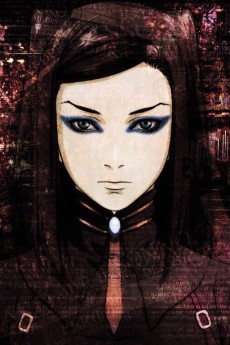 ANIME AdventureErgo Proxy
ANIME AdventureErgo Proxy ANIME AdventureKino no Tabi: the Beautiful World
ANIME AdventureKino no Tabi: the Beautiful World ANIME ActionShin Seiki Evangelion
ANIME ActionShin Seiki Evangelion OVA DramaTenshi no Tamago
OVA DramaTenshi no Tamago ANIME DramaMousou Dairinin
ANIME DramaMousou Dairinin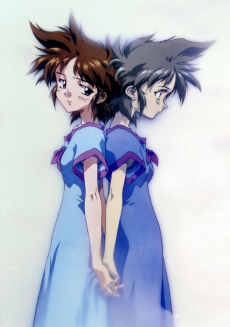 OVA ActionKEY THE METAL IDOL
OVA ActionKEY THE METAL IDOL
SCORE
- (4/5)
TRAILER
MORE INFO
Ended inSeptember 28, 1998
Main Studio Triangle Staff
Trending Level 5
Favorited by 12,104 Users





